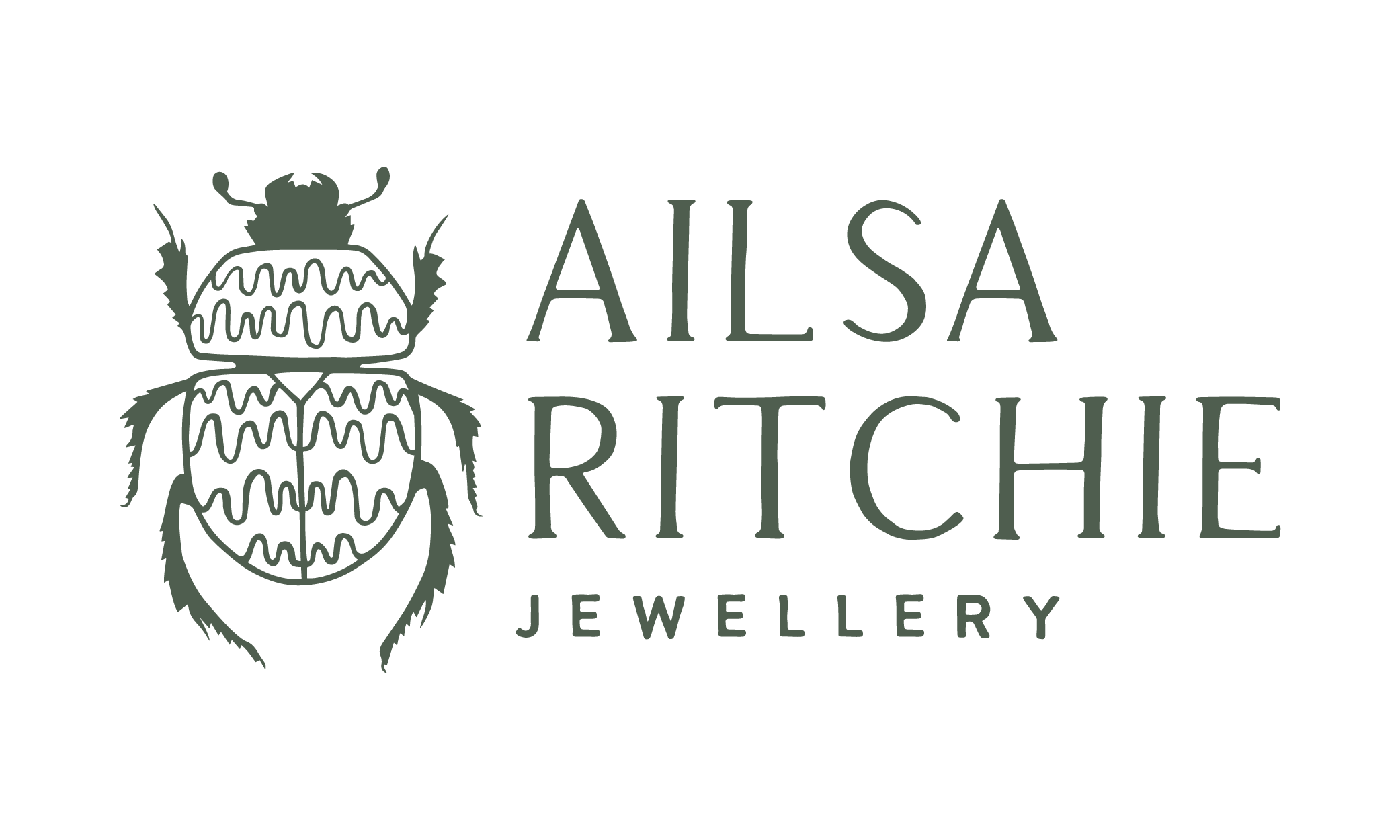Material & Environmental Impact Information
I’ve been working behind the scenes over the last few years to improve my practice and make it (I feel) more sustainable and ethical. It really is important to me although with jewellery it’s a big and complicated job.
Even though I have put in a lot of work to improve my business in this way you won’t actually find the words ‘sustainable’ or ‘ethical’ in my Instagram bio or on my website without context. These terms I feel mean different things to different people. For example; I use recycled metals as standard - but does that alone make my practice sustainable? Different people will probably have a different answer to that question.
What I will do is try to be as transparent as possible. I was one of the first 100 jewellers to sign up to the @fairluxuk #ProvidencePledge. Part of my pledge was to write a detailed blog post basically auditing myself and all the materials, chemicals and general studio practices I use. This has taken longer than I expected though so this is the start of it - but I’ll be adding more as I go! If you have any questions about my materials and business practices though please get in touch.
(One last thing - if other people just use the word ‘ethical’ this is NOT me saying to call them out. Although don’t be afraid to ask what that word means to them.)
Materials
What’s the difference between Sterling Silver and Recycled Silver? Do they cost the same?
Chemically they are exactly the same. Recycled silver is just sterling silver that hasn’t been newly mined. Instead it has been refined from silver already in the market. How many times it’s been refined and how long ago it was mined however I can’t find out. Recycled or ‘eco’ silver as its sometimes called (although I don’t like to call it that as I think it’s a very vague term) is currently around 15-20% more expensive than Sterling silver at one of my main suppliers. The term ‘Eco-silver’ is a brand name from a large supplier. Edit: Since writing this the supplier I mentioned has confirmed all their bullion is now recycled. Hurray!
What’s the difference between Recycled and Fairtrade Gold? What’s better?
I don’t think there is one clear answer to this so I have added a list of Pros & Cons for each so you can make an informed decision for what suits you best.
Recycled Gold
Pros.
- Just like recycled silver, recycled gold doesn’t have to be been newly mined and therefore reduces environmental impact. Gold mining can lead to deforestation, mercury poisoning and even human exploitation if not properly regulated.
Cons.
- How long ago the metal was mined, how many times it’s been recycled previously or the method / conditions for mining it originally are a mystery.
- although the environmental impact is lessened it’s effectively cutting out those who have been mining gold and therefore cutting off their income.
Fairtrade Gold
Pros
- very well regulated. Employees mining the gold are paid fairly and are provided safe working conditions.
Cons
- has been newly mined.
- is considerably more expensive.
- it is harder to get hold of for small businesses and sold traders like myself (see below)Are all your rings available in Fairtrade Gold?
Not currently. To be able to buy Fairtrade bullion (sheet metal, wire etc) and hallmark it as Fairtrade gold I must be registered. I have looked into doing this but the costs involved make it prohibitive for small makers like myself due to the current fees. I’m hoping this becomes an option in the future if I have a larger demand for Fairtrade. However I have a basic registration meaning I can buy it through larger companies (like my caster who has the full registration) - so my cast rings are available in Fairtrade gold but I can’t apply the hallmark. This is a bit confusing so I hope this makes enough sense!
Studio Practices / Chemicals
Traditional jewellery making involved a lot of nasty chemicals but luckily there are alternatives.
Pickle - is a mild acid used to clean metals after they have been heat up. I use food-grade citric acid as an alternative to the dodgy stuff we used to use at uni that burnt holes though your clothes!
Polishing
Barrelbrite - is used in my tumble polisher. I recently discovered it’s not great for the environment but I’ve switched to just using washing up liquid and it seems to work fine!
Polishing compounds - are used alongside a polishing wheel to buff the surface metal to a high shine. The good thing about these is they tend to last a really long time. Some of the compounds (tripoli and rouge) contain animal byproducts so I’ll be replacing these with a vegan option when I run out. If you are vegan and don’t want me to use these please let me know (I only use them on certain pieces to create a very high shine.)
